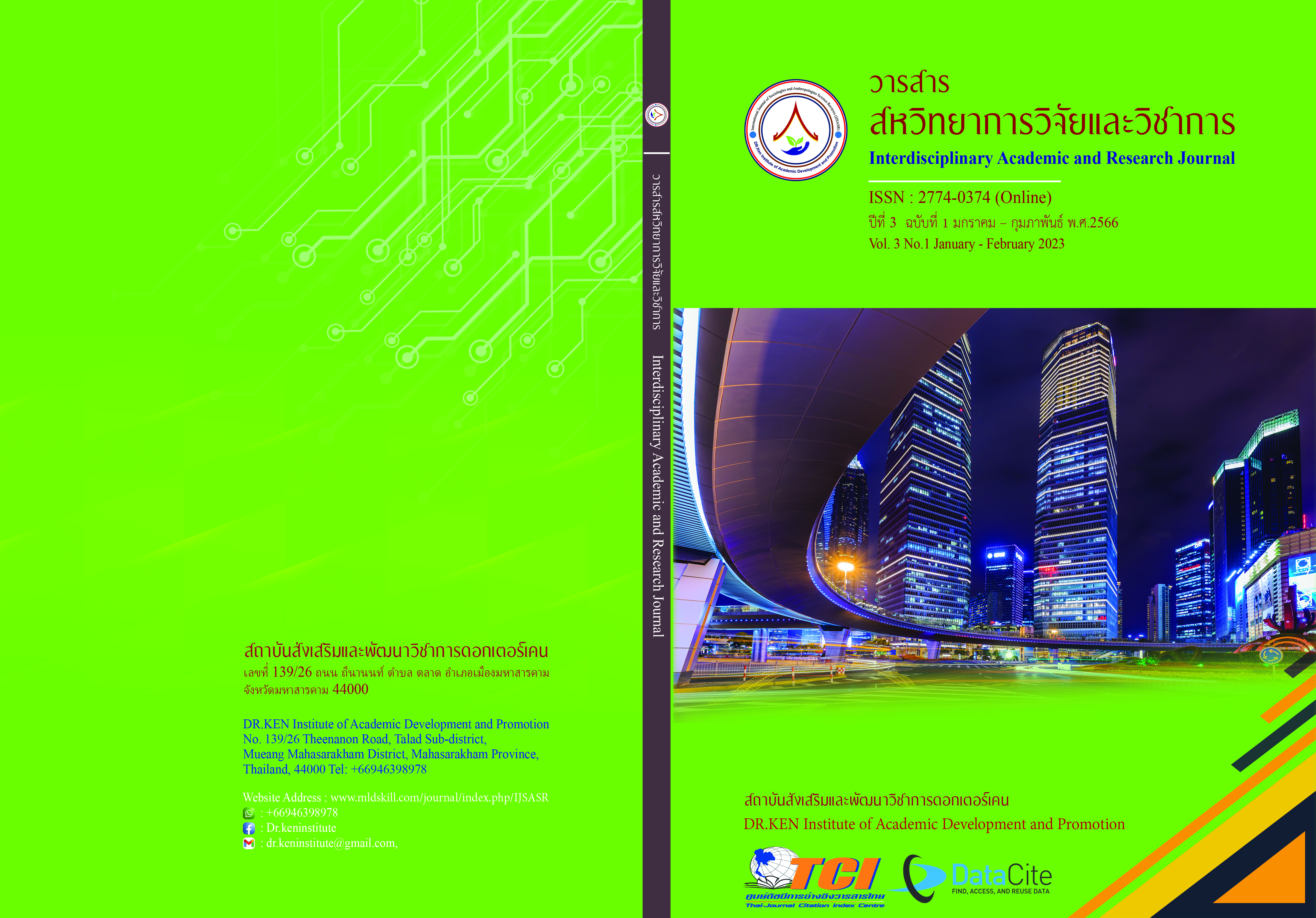The Teachers’ Need for Teaching Supervision under the Office of Chonburi Primary Educational Service Area 3
DOI:
https://doi.org/10.14456/iarj.2023.36Keywords:
Need; , Teaching SupervisionAbstract
The teacher's educational management process must encourage learners to develop naturally and to their full potential. Learning management, therefore, needs to be aligned with the aptitudes, interests, and development of the learners. Educational supervision, therefore, plays an important role in the development of educational management to achieve the goals and objectives of teachers and to provide quality education. The purposes of this research were (1) to study the teaching supervision needs of teachers. And (2) compare the level of teaching supervision needs of teachers classified by level of teaching, academic position, and education level. This study studied teachers under the Office of Chonburi Primary Educational Service Area 3. The sample consisted of 322 teachers. The statistics used for data analysis were percentage, frequency, mean, standard deviation, F-test, and t-test. The results showed that; (1) Teachers' need for teaching supervision overall was at a high level, when considering each aspect, it was found that all items were at a high level. (2) The result of a comparative analysis of the level of needs for teaching supervision of teachers classified according to the level of teaching, the overall difference was statistically significant at the .05 level, Classified according to the overall and individual academic positions were not different. Classified by the level of education was not different overall, but different aspects in terms of preparation and operation were statistically significant at the .05 level.
References
เทียมรัตน์ คงทนต์. (2554). ความต้องการพัฒนาตนเองของบุคลากรในบริษัท ทีเอสทีเมทัลเวิร์ค จำกัด. การค้นคว้าอิสระรัฐประศาสนศาสตรมหาบัณฑิต มหาวิทยาลัยราชภัฏกาญจนบุรี.
ธเนศ ขำเกิด. (2556). ระบบและกระบวนการนิเทศการศึกษา. วิทยาจารย์, 112 (7), 30-32.
บุญชม ศรีสะอาด. (2553). การวิจัยเบื้องต้น. พิมพ์ครั้งที่ 8. กรุงเทพฯ : สุวีริยาสาส์น.
วรวิทย์ ประทีป ณ ถลาง. (2564). ความคิดเห็นของครูต่อปัจจัยที่ส่งผลต่อความสำเร็จของการนิเทศการสอนของครูในโรงเรียนภายในสหวิทยาเขตวังทองหลาง สังกัดสำนักงานเขตพื้นที่การศึกษามัธยมศึกษาเขต 2. Journal of Roi Kaensarn Academi. 6 (2), 46 -57.
วราพร บุญมี. (2564). สื่อการสอนกับการเรียนรู้ในศตวรรษที่21. วารสารการบริหารนิติบุคคลและนวัตกรรมท้องถิ่น. 7(9), 374-386.
สมชาย รัตนทองคำ. (2556). การพัฒนารูปแบบกาสอนเพื่อเน้นกระบวนการคิดอย่างมีวิจารณญาณสําหรับนักศึกษากายภาพบําบัด มหาวิทยาลัยขอนแก่น. วิทยานิพนธ์ศึกษาศาสตร์มหาบัณฑิต.มหาวิทยาลัยขอนแก่น.
สมหวัง พันธะลี. (2565). การศึกษาผลการนิเทศการจัดการเรียนรู้ตามแนวคิดการสอนแนะ และการเป็นพี่เลี้ยงครูสำหรับศึกษานิเทศก์. วารสารปัญญาภิวัฒน์, 14 (1), 308 – 320.
สหัสนัยน์ กฤษณสุวรรณ. (2561). ความต้องการการนิเทศภายในสถานศึกษาขั้นพื้นฐาน สังกัดสำนักงานเขตพื้นที่การศึกษาประถมศึกษาสุรินทร์ เขต 1. วารสารวิชาการมหาวิทยาลัยการจัดการและเทคโนโลยีอีสเทิร์น. 15(2), 544-551.
Krejcie, R.V. & Morgan, D.W. (1970). Determining Sample Size for Research Activities, Journal of Education and Psychological Measurement. 30 (3), 607-610.
Rifma Rusli. (2021). Supervision content needs analysis for a teacher sustainability professional program. Journal Ta'dib distribute, 24 (2),205 – 216.
Watson, G. & Glaser, E. M. (1964). Wattson - Glaser Critical Thinking Appraisal Manual. New York: Harcourt, Brace and World.
Downloads
Published
How to Cite
Issue
Section
License
Copyright (c) 2023 Natkrita Seethim

This work is licensed under a Creative Commons Attribution-NonCommercial-NoDerivatives 4.0 International License.
Copyright on any article in the Interdisciplinary Academic and Research Journal is retained by the author(s) under the under the Creative Commons Attribution-NonCommercial-NoDerivatives 4.0 International License. Permission to use text, content, images, etc. of publication. Any user to read, download, copy, distribute, print, search, or link to the full texts of articles, crawl them for indexing, pass them as data to software, or use them for any other lawful purpose. But do not use it for commercial use or with the intent to benefit any business.
















.png)


